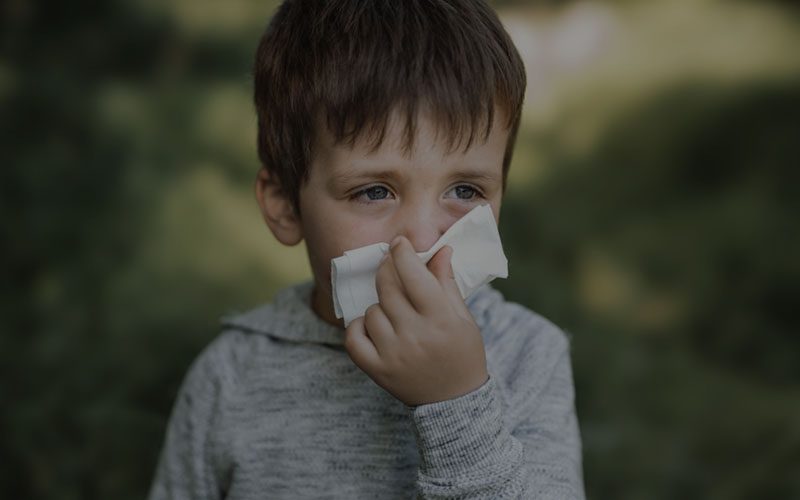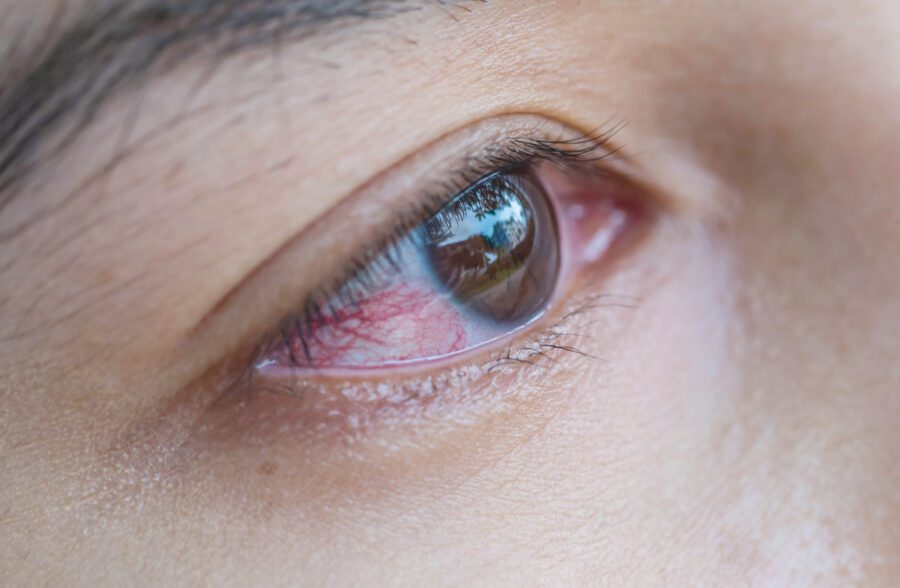Hay Fever

What is Hay Fever?
Hay Fever (also called allergic rhinitis) is an allergic reaction that occurs when your immune system overreacts to airborne substances like pollen, dust mites, mold, or pet dander. Symptoms often include sneezing, runny or stuffy nose, itchy eyes, throat, or ears, and watery eyes. These symptoms can be seasonal (triggered by pollen in certain months) or year-round (caused by indoor allergens). While hay fever is not dangerous, it can affect your comfort, sleep, and daily activities. Treatment may include avoiding triggers, using medications like antihistamines or nasal sprays, and in some cases, allergy shots for long-term relief.
What causes hay fever?
Hay fever, also called allergic rhinitis, develops due to an immune reaction that determines a harmless substance poses a threat to your health. Your immune system creates antibodies that identify that substance; every time you breathe it in, you have an allergic reaction. You can develop two types of hay fever:
Seasonal hay fever
You get seasonal hay fever when you develop an allergy to trees, grasses, and weeds that release pollen during specific seasons. Molds that grow outdoors can also trigger seasonal hay fever.
Perennial hay fever
If you have an allergy to dust mites, pet dander, or cockroaches, you can have hay fever all year. In warmer climates, molds also cause perennial hay fever.

What symptoms develop due to hay fever?
Hay fever typically affects your nose and eyes, causing symptoms such as:
- Sneezing
- Runny nose
- Congested nose
- Itchy nose and eyes
- Red, watery eyes
- Swelling around your eyes
You may also have trouble with postnasal drip.
How do allergists diagnose hay fever?
Though your medical history and symptoms may make a good case for diagnosing hay fever, you need allergy testing like a skin prick test to learn which allergens cause your symptoms. During a skin prick test, your provider places a small amount of different allergens on your skin and makes a tiny puncture in the skin. If you’re allergic to any of the allergens, you develop a small, red skin reaction within 15-20 minutes.
How do allergists treat hay fever?
For most patients, the first line of treatment includes a plan to eliminate the allergen from your environment and over-the-counter medications to relieve symptoms.
If your symptoms don’t improve or they’re already severe, your provider may recommend one of two types of immunotherapy:
Allergy shots
Allergy shots contain a small amount of your allergen. You receive a series of injections following a regular schedule, with the dose gradually increasing in each one.
Over time, your immune system becomes desensitized to the allergen, and you get dramatic relief from your symptoms. Some patients find that their allergies often disappear.
Rush immunotherapy
Some patients are good candidates for rush immunotherapy, which gets faster results by giving you multiple allergy shots in one day. By comparison, you typically get one or two allergy shots a week.
If you suspect you have hay fever and you need relief from the symptoms, call Bellagio Family Medical, or book an appointment online today.




